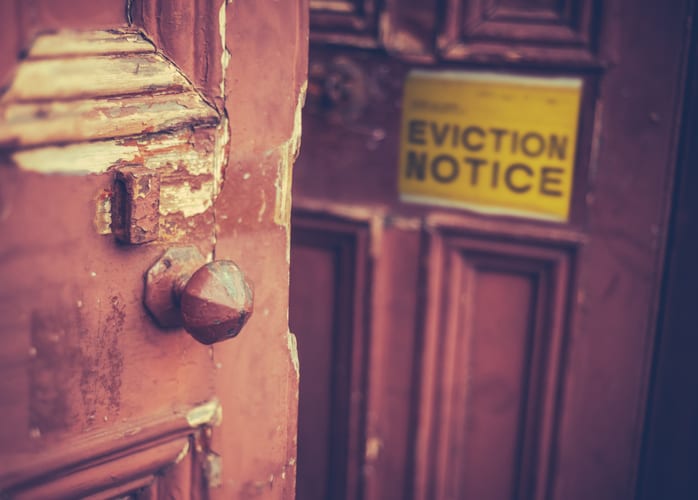You know you have some people like this in your life…
They have a ton of money, they’re always traveling to amazing places, AND they’re constantly posting pictures of their adventures.
And some of these folks can be really shallow…you know it’s true!
Do you think travel culture is just another form of flexing and doesn’t make people any more enlightened?
Let’s take a look at how AskReddit users responded.
1. Here’s the deal.
“Many bash those who waste a lot of money on materialistic goods or who like activities that are considered “shallow”, like clubbing and partying.
Meanwhile, “traveling” is often portrayed as the enlightened way to pass your time. Of course there is nothing inherently wrong with traveling, but I disagree that people who travel a lot are automatically any less shallow than those who go clubbing or buy a lot of stuff.
First of all, “travel culture” is a form of flexing. It has become less acceptable to brag about owning expensive stuff, so people now brag about their trips. Especially on Instagram, it is obvious that many use their travels to flex and show us how “superior” they are.
“Traveling” doesn’t make you an enlightened intellectual in any way. I could maybe understand this argument 30 years ago but nowadays, anyone can find any information they want about any place they like.
They can use the Internet to explore a country, without traveling there and contributing to its destruction. (tourism can be very bad for the environment)
Also, people have fun with different things. Maybe someone thinks that buying a PS5 is more fun to them than going on some stupid trip. That is their business and their choice is not inherently inferior.”
2. Great experiences.
“I am an introvert but one of my best experiences was like, I am buying a ticket from London to Brazil…. Total bliss!
I absolutely love getting to know places on my own and meeting the locals. I have had a lot of fun travelling on my own. Met great people.”
3. A competition.
“I was really interested in this girl that traveled a lot and I travel a lot for work so I thought maybe we had something in common.
When I found out that all she does is get a $30 Airbnb to sleep somewhere for the night and then go to the next place just to mark it on her passport but never actually enjoys any of the places, I definitely said pass pretty quickly.
I was wondering what the hell is the point of traveling that much if you’re not enjoying any of it. It was like she was on this competition to check in on Facebook to as many places as possible and then used that in all of her conversations to try to act like she was better than everyone else.”
4. Let’s go a bit further.
“Taking this point a bit further, traveling to do the same activities everyone and their mother does aimed at tourists isn’t enlightening
Traveling becomes enlightening when you explore the culture, mingle with locals, try their traditional food.
That’s not something you can google or check online, it’s something you experience.”
5. Street cred.
“Tinder and Hinge in my 30s is at least 50% women with only pictures of travel, and their desires are travel, and the profile describes how they are the traveliest traveler that ever traveled.
I’ve traveled for work and vacations. It is not my personality. It really does look like gaudy flexing to me.
The ones that really irritate me are the people who “vacation” to oppressive dictatorships and dangerous areas like warzones for the traveler street cred.
It’s like being some kind of weird upper-middle class adrenalin junkie.”
6. Never heard that term before.
“My husband calls these people “globe f**kers”.
As someone who has lived and travelled in many different countries because of my work, I’m hyper paranoid about sounding like a pretentious a**hole when I talk about my experiences.
Being well travelled is not a personality trait, but the worst have to either be the people who “backpacked” (drunkenly stumbled thru 3 countries for a month) and talk about it for the next 15 years.
Or the volun-tourism crowd who think they really made a difference during their 2 weeks at an orphanage in a country they dont speak the language, or building houses with zero skills.”
7. The straight dope.
“The benefit is really only for people that pay attention and keep an open mind.
My family has some very devout Mormons in it, and a weird Mormon thing to do is to spend at least a few hours at exotic temples when in the area. My aunt and uncle went to Italy a couple years ago and literally spent two days at the Mormon temple there, in which they play dress up and watch the same Adam and Eve movie as they do at their temple in the US.
I’m sure they still did a few cool things, but I think that perfectly highlights a bit of an oblivious emotional distance from their destination’s culture, and I really think they miss out on the beauty of it by having such a cursory and perfunctory approach to travel.
I can’t deny that people over romanticize it and it can become a classist bulls**t flex, but when you get to go to a new place and see the world a little differently or understand their way of life a bit better, I think it can improve your own worldview and increase empathy….but you gotta actually get out there and pay attention to it all.”
8. Don’t show off.
“Finally having the ability to do some limited travel has really opened my eyes to the rest of the world in a way the internet never could.
I’m in my late 40s now, and I know it’s expensive, but I wish Americans traveled internationally more. We’re so much smaller than we think, and no amount of internet can showcase that in the same way actually staying in a foreign country can.
I think your issue is not with travel but with the way some people talk about travel or show off on social media.”
9. A good thing.
“Maybe it’s a flex for some, but there’s is no substitute for seeing and experiencing the world for yourself.
It does change you and reading about it isn’t the same by a mile.”
10. Just fantastic.
“I think traveling and exploring the world is a fantastic way to spend your fleeting life.
I have made it a point to travel frequently and to some pretty awesome places. I don’t even have Instagram and only take pictures of animals and landscapes. For me, it’s mostly for the food and different species of animals, because that’s what Im into as a biologist.
My favorite was the Peruvian Amazon. 7 monkey species, macaws, all kinds of snakes. You can see them in books, but there is no substitute for in person.”
11. What’s the motivation?
“Saying “I like traveling” is the same as saying “I like reading” – it tells you nothing about the person unless you ask more questions and ask them to elaborate.
Someone who says “I like reading” but only reads books like “Twilight” or “50 shades of grey” is different from someone who reads history books or specific books about their interest – space, chess, math, you name it.
Someone who says “I like traveling” but only goes to Thailand or Bali to party and drink for 2 weeks is not the same as someone who cycles around the world for 6 months, or crosses half the world on a boat, or backpacks through Africa staying in villages and connecting with local people.
These are all different experiences. One of them is definitely more enlightening than the other. One is about just having fun without improving yourself as a person while the other one is more likely to give you some “food for your brain”.
The important part is the motivation behind these activities. Why does the person travel? Some travel for parties, other travel for sports (surfing, diving, kayaking etc), others travel for nature (hiking, camping), other travel for volunteering (helping with wild life conservation, preservation, beach cleaning), other travel for the cultural exchange (teaching kids in remote villages English), some travel for their own education (taking Spanish lessons in Bolivia).
Some people combine several of them (personally that’s what I do). There are many reasons to travel. If you think that every traveler is the Instagram traveler you are just stupid and shallow which is pretty sad actually.”
12. From a travel industry worker.
“I used to work in the travel industry and dealt with numerous ‘country counters’ (people who are trying to visiting every country in the world).
It felt like the majority of them were mindlessly trundling around the world, ticking off countries as if it was simply something to consume. If that’s not sad enough, some of these country counters even compete with one another using league tables or try to bolster their reputations by marketing themselves as the first *insert s**uality, insert gender identity, insert race, insert social class, insert nationality, insert whatever* to visit every country in the world.
I can tell you now, despite what these people like to think there’s no skill in visiting a s**t-load of countries for sightseeing. It’s not an achievement and nor is it remarkable. All that’s required is money, competent travel agents and local fixers.”
What are your thoughts about this topic?
Talk to us in the comments and let us know.
We’d love to hear from you!
The post People Talk About the Statement, “Travel Culture Is Another Form of Flexing” appeared first on UberFacts.












